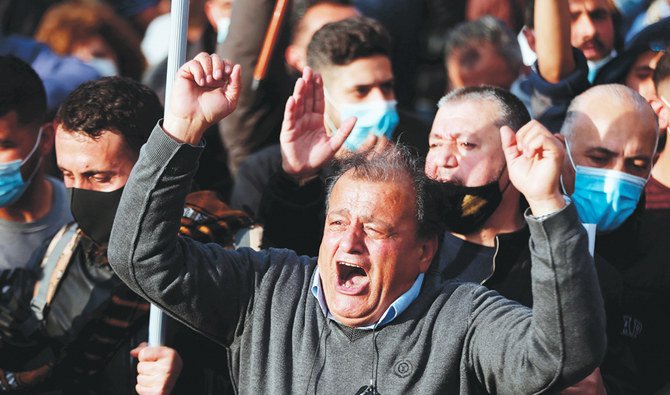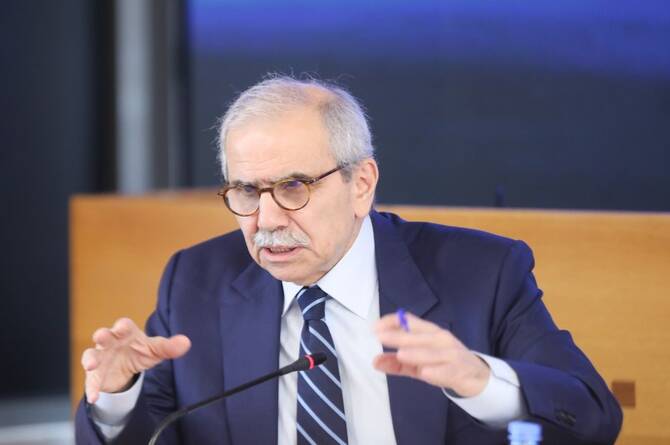Najia Houssari
BEIRUT: Lebanon’s impoverished prisons could be hit by rioting and widespread unrest if overcrowding and hunger among inmates worsens, observers warn.
The claim by prisoner representatives and human rights delegates comes as Lebanon’s economic crisis leads to a collapse in many state institutions.
Hunger, as well as diseases linked to malnutrition and hygiene, are a growing issue in Lebanese prisons, especially those in poorer areas, where many prisoners rely on their families for food and medical care.
Prisoners fear they are being “left behind” as the country’s economic and fiscal woes cut the value of the minimum wage by almost 90 percent, plunging many communities into poverty.
Mohammed Sablouh, a lawyer and prison committee rapporteur at Tripoli’s Bar Association, told the parliamentary human rights committee that “hunger has found its way into Roumieh prison.”
Roumieh, the country’s central prison facility, is considered better than other prisons in the governorates.
Sablouh told Arab News that the prison kitchen normally feeds about 800 inmates with no outside support, while the remaining prisoners receive money from their families to buy food from the prison’s store.
However, the country’s economic crisis meant that most of the prisoners — about 3,200 — now depend on prison meals after the prices of goods in the prison’s store increased and most families were unable to provide the inmates with enough money.
Sablouh added: “The quantity of food provided by the prison kitchen has decreased dramatically, and meat has disappeared.”
Fruit is also scarce, he said.
“Two inmates now share an apple. Dairy products have been replaced with jam — what can a diabetic inmate do?”
Sablouh said that prisoners complained of high prices in the prison’s store, saying the cost of many items is now comparable to the local market.
A Ministry of Interior source told Arab News that some foods have been banned from Roumieh prison “to prevent the entry of contraband.”
The source added: “The goods sold in the prison’s store are subsidized. As for the austerity in meat, this is the case in all homes and the meals of the military as well.
“So far, the situation is acceptable, but we do not know how things will develop if the Lebanese pound continues to collapse.”
A delegation from the parliamentary human rights committee is expected to visit Roumieh prison next week.
MP Michel Moussa, the head of the committee, told Arab News that a delegation from the National Commission for Human Rights will investigate.
“It is true that there is a reduction in the budgets of all ministries, but not to the point of affecting prisoners’ food,” he said.
Sablouh, who also acts as a lawyer for several inmates in Roumieh Prison, said that prisoners will wait on the committee’s findings.
But he warned that if no action was taken, “prisoners’ complaints will turn into a hungry revolution.”
The Food and Agriculture Organization and the World Food Program have declared Lebanon a “hunger hotspot,” and issued early warnings on acute food insecurity.
According to a joint report released on Friday, Lebanon is among the countries in which further economic deterioration is expected.
Protesters attempted to block a road leading to the Baabda Palace on Saturday, calling for a transitional government or for the ruling authority to step down.
The demonstrators, who carried Lebanese flags, faced tight security measures.






















